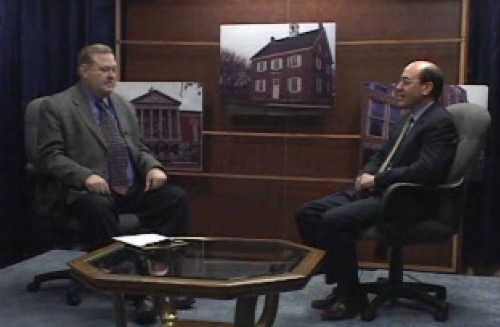As the proverb goes, “It is better to give than to receive.” The sage who coined this phrase was no doubt speaking in terms of the good we can do by making gifts. Little did he know that following this same advice can lead to tax savings as well. However, another wise man instructed us to “look before we leap.” As such, a careful examination of both personal and tax considerations should be made before embarking on a course of lifetime gift-giving.
Certain benefits make gifting a strategy that’s often suggested by estate and financial planners. Perhaps the most significant advantage is that federal estate taxes and probate costs will be reduced because the gifted property is no longer part of your estate. Giving also serves to reduce Pennsylvania inheritance tax provided you survive the gift for a period of one year. Those with the largest estates are often encouraged to adopt a pattern of giving for these reasons alone.
In addition to saving death taxes, income tax savings are also possible through the use of lifetime gifts. Although certain provisions of the tax law restrict your options, you can still achieve income tax savings by giving income-producing property to those in lower tax brackets. For instance, if interest on your certificates of deposit are taxed to you at 35 percent, you may be able to pocket 25 percent more by giving the funds to a family member in the 10 percent tax bracket.
From a personal standpoint, making lifetime gifts allows you to see how the recipient manages the property or money. This may help you decide whether later gifts should be made outright or in trust. Also, lifetime gifts are private. They need not become part of the public record like gifts made under a Will.
Last, but not least, are the advantageous rules that make certain gifts nontaxable. The basic rule is that in the year 2024 anyone can give up to $18,000 (this is up from $17,000 in 2023) in money or other property to any number of parties without gift tax. This $18,000 per year, per recipient rule is known as the annual gift tax exclusion. Since 1981, the annual gift tax exclusion had been $10,000. However, because of cost-of-living adjustments, the exclusion became $11,000 for gifts made in 2002 through 2005; $12,000 for gifts made in 2006 through 2008; $13,000 for gifts made in 2009 through 2012; $14,000 for gifts made in 2013 through 2017; $15,000 from 2018 through 2021; $16,000 in 2022 and $17,000 in 2023. Gifts between U.S. citizen spouses, regardless of amount, are also nontaxable. So, too, are certain tuition and medical expenses that you pay on behalf of another.
While making gifts obviously has its advantages, as is the case with any other action, it has its disadvantages as well. Initially, to achieve the advantages of gifting, you must relinquish all control over the gifted property. The gift must be made with no strings attached. As such, before gifting, you must be sure that the assets you retain are sufficient to enable you to withstand any unexpected increases in your own living expenses. Another personal factor to consider is the possible adverse effect on family relations. This often occurs when one sibling sees the gifts as being made in unequal proportions.
Perhaps the most significant tax disadvantage of gifting is the loss of the so-called “stepped-up” basis. This can be best explained by an example. Let’s say you purchased unimproved land for $10,000 but the land is now worth $100,000. If you sell the land, you would realize a $90,000 (100,000 minus 10,000) gain. If you were to make a lifetime gift of this property, the recipient would stand in your shoes and would also realize a $90,000 gain if they were to sell the property. If, however, you were to die owning the property and leave it to your beneficiaries in your Will, those beneficiaries would receive it as if they paid $100,000 for it. As such, they could in turn sell it for $100,000 and realize no taxable gain. Because of the “stepped-up basis” that a decedent’s beneficiaries receive, it’s suggested that a donor refrain from gifting appreciated property.
Making gifts can also have an impact on your eligibility for nursing home medical assistance. Any gift, even those under the gift tax annual exclusion ($18,000 in 2024), can make you ineligible for Medicaid benefits if the gift occurs within the 5-year period prior to a Medicaid application. This aspect of gifting is covered in another article on gifts and Medicaid.
As you can see, the decision to make significant gifts involves consideration of many personal and tax factors. If you have the inclination or the need to institute a gifting program, you should be speaking with your financial advisers to determine whether it truly is better to give than to receive.
